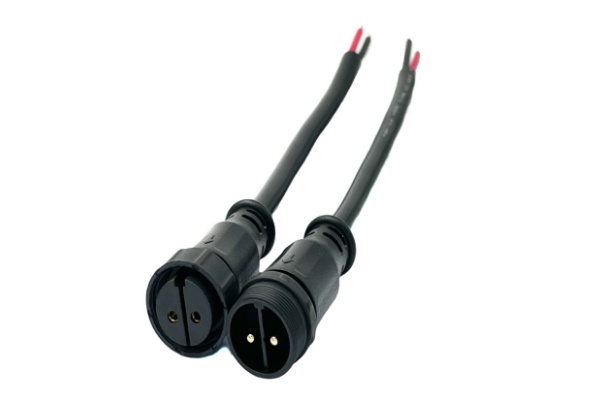News


News

Vibration Survival Guide: Threaded vs. Bayonet Locking in Heavy Duty Waterproof Electrical Connectors
Release time:2025-08-11
viewed:404
In mining trucks rumbling across rocky terrain or wind turbines battling gale-force winds, heavy duty waterproof electrical connectors face relentless vibration. The choice between threaded and bayonet locking mechanisms isn’t just preference—it’s a decisive factor in system survival.

Vibration accelerates failure in three critical ways:
Micro-motion: Tiny movements between contacts cause fretting corrosion.
Resonant Frequency: Matching vibration frequencies amplify displacement.
Seal Fatigue: Constant flexing degrades waterproof seals.
Heavy duty waterproof electrical connectors must conquer these forces—or trigger costly downtime.
Bayonet systems (quarter-turn locks) offer rapid mating but fight vibration with friction alone.
Pros:
5-second mating time (critical for emergency repairs).
Visual/tactile confirmation (audible "click").
Cons:
Vibration-induced rotation: Tests show 7-12G vibration can unlock bayonets.
Single-point failure: One deformed latch compromises the entire seal.
Limited torque: Cannot achieve >15 Nm retention force.
Real-World Failure: A Chilean copper mine reported 32% unplanned disconnections in conveyor systems using bayonet heavy duty waterproof electrical connectors within 6 months.
Threaded designs use mechanical advantage to immobilize connectors under stress:
Helical Defense: Spiral threads convert axial vibration into rotational resistance.
Progressive Locking: Multiple thread engagements distribute force.
Torque Scalability: Withstands 30+ Nm retention force (double bayonet systems).
Heavy duty waterproof electrical connectors with threaded locking excel in:
High-G Environments: Surviving 15G vibration (MIL-STD-202H).
Thermal Cycling: Metal/plastic differential expansion compensated via thread tolerance.
Seal Compression: Precise torque control maintains IP69K integrity.
Field Proof: Australian iron ore trains cut connector-related failures by 89% after switching to threaded heavy duty waterproof electrical connectors.
Vibration Profile
< 10G, low frequency? Bayonet suffices.
10G or shock pulses? Threaded is non-negotiable.
Sealing Strategy
Bayonet: Relies on static gasket compression.
Threaded: Dynamic O-ring compression + anti-backoff teeth.
Maintenance Access
Tight spaces favor bayonet’s quick disconnect.
High-vibration zones demand threaded security.
Lifecycle Cost
Bayonet: Lower upfront cost, higher failure rates.
Threaded: 3x lifespan in vibration-heavy applications.
For stationary equipment with minimal vibration, bayonet heavy duty waterproof electrical connectors offer speed. But in mobile or high-stress environments—from construction rigs to battlefield systems—threaded locking is the armor that prevents disconnection disasters.